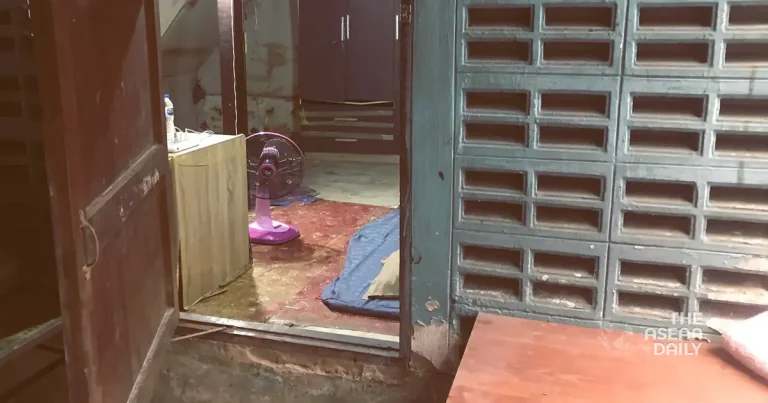1-11-2024 (BANGKOK) A dilapidated wooden house in Thailand’s capital has transformed into an unexpected hospitality success story, with rooms fully booked until 2026 despite – or perhaps because of – its brutally honest “slum-style” marketing approach.
The property’s owner, Supoj, who inherited the traditional Thai house from his uncle, offers rooms for as little as 19 baht (75 pence) per night through Airbnb, creating what has become one of Bangkok’s most peculiar tourist attractions.
In a refreshing departure from typical hospitality marketing, Supoj makes no attempt to disguise the building’s shortcomings. Guests must navigate wooden ladders to reach some rooms, flush toilets with buckets of water, and sleep on floor-level beds protected by mosquito nets. Despite these basic conditions, the house maintains an impressive 4.9-star rating from visitors.

“The property requires substantial renovation funds, which led to this rental solution,” Supoj explained to local media outlet Vision Thai. He added that his initial motivation was partly driven by a fear of darkness and solitude, prompting him to seek companionship through hosting guests.
The seven-room property has evolved into a unique communal living experiment, currently housing between eight and ten residents, some staying for up to a year. One room, dubbed “Boss Room 3”, has achieved particular notoriety, with bookings extending into February 2026.
Despite the bare-bones amenities – most rooms equipped with just fans, though one boasts a donated air conditioner – Supoj maintains high standards for guest selection. His detailed listing includes extensive instructions and transparent descriptions of the accommodation’s limitations.
The success appears rooted in Supoj’s dedication to creating a family-like atmosphere. He manages a group chat for residents, personally welcomes new arrivals at the airport, and ensures guest safety – once rushing to fill rooms to provide company for a lone female visitor.
“I treat every guest as family,” Supoj states in his listing. This approach has resonated with visitors, who consistently award top ratings despite the basic living conditions and paper-thin walls that enable inter-room conversations.




